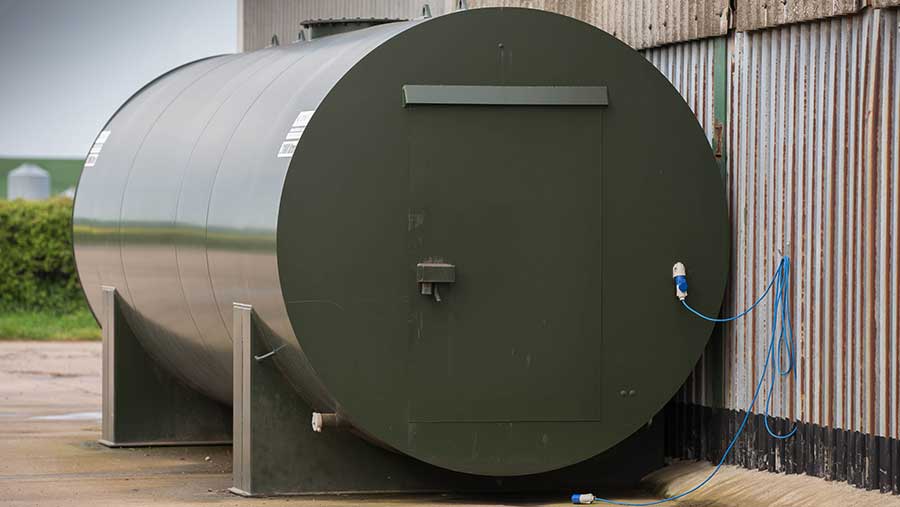Trips and slips to avoid when selling a farm or land
 Diesel storage and septic tanks should comply with current legislation © Tim Scrivener
Diesel storage and septic tanks should comply with current legislation © Tim Scrivener Strong demand for land and farms in an undersupplied market should make for a quick and easy sale.
However, many issues cause delays, especially if the buyer or their solicitor is not familiar with rural property and farmland matters.
Sales can become very complicated and protracted if things have not been prepared properly and permissions and paperwork are not in order, says Rachel Bagshaw, associate director at H&H Land & Estates in Cumbria.
See also: Selling a farm in 2023 – tax, legal and practical tips to smooth the process
“Even in a buoyant market, buyers can be put off by problems and delays,” she says.
“When you make sure you clear any potential obstacles to a sale, you give yourself the best chance of achieving a successful outcome, at the best price, as simply and quickly as possible.”
Farmer buyers are generally less concerned with the presentation of the property and more with the quality of the land and facilities.
“They are much more likely to accept it in its current condition, so undertaking repairs and refurbishments in advance of putting it on the market is not so important,” says Ms Bagshaw.
However, where a property is likely to appeal to lifestyle buyers, repairs and refurbishments may be worth considering.
Entitlements and schemes
As well as title registration, issues which commonly cause delay include questions or lack of clarity on entitlements and/or stewardship agreements which may need to be transferred to the new owner post completion.
“Ensure that you or your agent have this in hand and agree, in advance of the launch to the market, who will meet any professional costs associated with these,” says Ms Bagshaw.
If they are to be met by the buyer then this and other such costs should be made clear in the sale particulars.
Fuel and septic tanks
Ensure septic tanks and oil and diesel tanks comply with current regulations. This may mean having a survey done.
If remedial works are required, either complete this yourself or get a quote so the purchaser knows what it will cost them to put it right.
Septic tank legislation changed in 2020 but not all have been upgraded to meet the new requirements.
Planning permission
As well as checking that correct planning permissions are in place for any development or change of use that has taken place, follow up to make sure any associated planning conditions have been or are being met, advises Ms Bagshaw.
If a development or activity has occurred without planning permission, consider applying for a Certificate of Lawful Use to regularise the use. This may need professional advice.
Private water supplies
Buyers are likely to seek reassurance about the quantity and quality of water if the property has a private water supply from a spring or borehole.
Domestic water should have UV treatment and the source of the water should be protected from contamination.
If the private water supply serves multiple residential dwellings, then the district council is responsible for undertaking a risk assessment and sampling the water periodically.
Disputes
It is a legal requirement that past and current disputes relating to a property are disclosed to buyers, so any outstanding disputes should be resolved before sale.
With farmland, the most common disputes are likely to involve boundaries and access.
